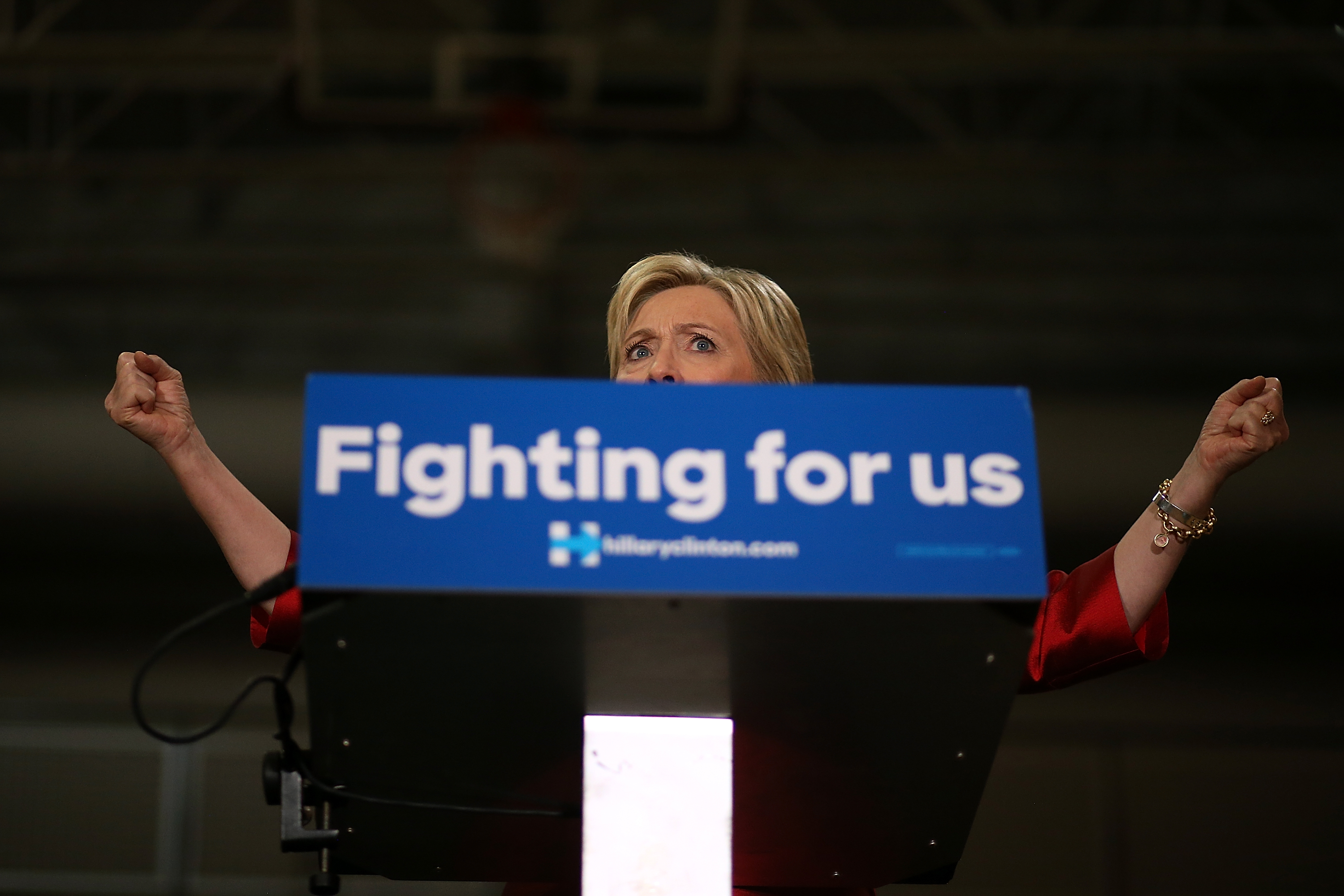How Hillary Clinton awkwardly exploited the limits of Bernie Sanders' political imagination
Clinton hardly routed Sanders in Nevada, but she did just enough


A free daily email with the biggest news stories of the day – and the best features from TheWeek.com
You are now subscribed
Your newsletter sign-up was successful
After a late surge from Bernie Sanders, Hillary Clinton managed to eke out a win in Nevada on Saturday. Clinton played the expectations game brilliantly, casting her near-humiliation as just one more step closer to an inevitable victory. But there's only so much finessing even a Clinton can do. Despite her projection of limitless confidence, her victory speech in Nevada laid bare the limits of her appeal to Sanders' supporters.
It's clear that Clinton believes Bernie Sanders is the real letdown. "Americans are right to be angry, but we're also hungry for real solutions," she said in her victory speech, casting his jeremiad against Wall Street as a "single issue" unfit for a full-spectrum country. Yet she showed how stubbornly blind she remains to the disappointments of American life that Sanders has tapped in to.
"This is your campaign," she said proudly, "and it is a campaign to break down every barrier that holds you back. We're going to build ladders of opportunity in their place so every American can go as far as your hard work can take you." From a pro-Sanders standpoint, there is Clinton's flawed thesis, right out in the open. Although Clinton is willing to acknowledge "the reality of systemic racism," she refuses to countenance the idea that our economy itself is systemically flawed, erecting secret barriers only radical reform can address.
The Week
Escape your echo chamber. Get the facts behind the news, plus analysis from multiple perspectives.

Sign up for The Week's Free Newsletters
From our morning news briefing to a weekly Good News Newsletter, get the best of The Week delivered directly to your inbox.
From our morning news briefing to a weekly Good News Newsletter, get the best of The Week delivered directly to your inbox.
Many young Sanders voters, whom Clinton did her best to speak to, are indeed "coming of age in a world where opportunity seems out of reach." Her vaunted solutions, however, strike themes so predictable they ring hollow. Twice Clinton said "we need more jobs" — an objective she'd meet by somehow "unleashing the innovation of our entrepreneurs and small businesses" and increasing "investments in manufacturing, infrastructure, and clean energy."
Unfortunately, the Sanders base is already certain that the blistering success of Silicon Valley has done little, if anything, to deliver them better jobs or financial security. And as much as they appreciate green resources, neither solar panels nor factories nor roads will break the invisible walls they keep running up against.
Sure, they'd agree with Clinton that "it's time for equal pay for equal work." But they'd object that, in a system where Marissa Mayer's wealth and fame seems to grow the more Yahoo's diminishes, the dramatic imbalance between the fortune of the few and the floundering of the many can't be waved away by an appeal to gender bias. For the Sanders vote, Bernie's emphasis on Wall Street is only common sense: It's Wall Street that plays the tune we must dance to. For all their innovative power, Google and Apple have yet to beat Goldman Sachs at its own game. Alone, free enterprise can't fix a rigged system.
So does that mean Sanders is poised for a resurgence after his narrow Nevada loss? Well, not exactly. Clinton has one big thing going for her: the limits of the Sanders crowd's political imagination.
A free daily email with the biggest news stories of the day – and the best features from TheWeek.com
Many Sanders voters are mature enough to reject the cult of upward mobility, yet naive enough to believe that government can compensate by simply paying for a big enough array of entitlements. Ultimately, they believe that the walls that impede success were put there by rich capitalists or by capital itself. The fact is that when everyone competes and we all become more similar in our tastes, dreams, fears, and capabilities, the vast majority wind up interchangeably insignificant in the bulge of the universal bell curve, while a relative handful of crazily talented and ambitious people make extraordinary gains. It's true that raising taxes on the ultra-rich would ameliorate the pain and anxiety we feel. But we don't have the financial system to blame for this as much as we do ourselves.
The solution to that problem, according to Alexis de Tocqueville, is for people to risk the awkwardness of coming together face-to-face to grapple firsthand with the unglamorous details of everyday life.
The temptation today in American politics is to give up on fundamental reform in favor of the comforts of identity politics. Whatever its partisan stripe, identity politics gives us a shot of pride right at the moment we'd rather not feel so insignificant before America's vast problems and vast government. This is what Clinton awkwardly taps into and what Sanders ignores — at his own peril.
James Poulos is a contributing editor at National Affairs and the author of The Art of Being Free, out January 17 from St. Martin's Press. He has written on freedom and the politics of the future for publications ranging from The Federalist to Foreign Policy and from Good to Vice. He fronts the band Night Years in Los Angeles, where he lives with his son.
